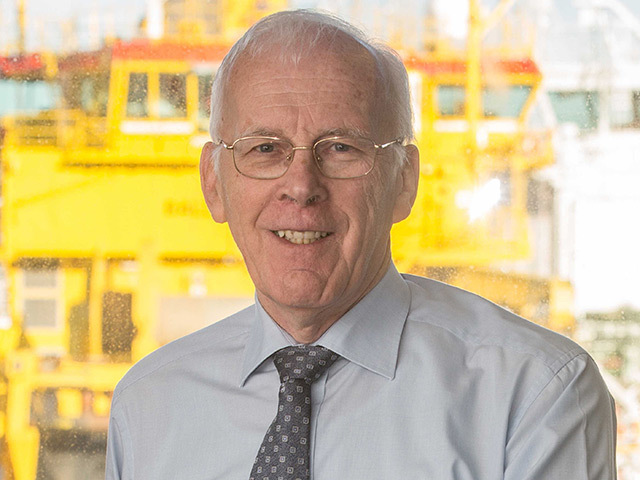
A new regulator with stronger powers to force companies to work together should take charge of driving the next phase of North Sea development, a new report into the oil and gas industry has recommended.
Sir Ian Wood’s interim review of the best ways to improve output and production from the UK Continental Shelf believed upwards of four billion barrels more could be accessed – worth more than £200billion to the economy.
But he said the only way it could work would be with a new regulator to take the burden of resources off the Department for Energy and Climate Change, which has overseen the North Sea processes so far.
“I believe it is now time for a step change in North Sea stewardship and collaboration,” said Sir Ian.
“We need to be prepared for the challenges of this next phase in the UKCS’ life. A better resourced arm’s length regulator with a strong economic focus, capable of attracting top quality personnel with appropriate industry experience, will be able to work more closely with the industry and facilitate the development and progress we need.
“This will require fundamental changes in operator behaviour but, as my interviews confirmed, they are clearly up for it.”
MORE:
Jeremy Cresswell’s analysis: Damning report pulls no punches
Video: Sir Ian Wood talks to Energy Voice about the report
Click here to read the full report
Is a new regulator the answer? Vote in our poll
But he admitted to Energy Voice that, even with the need for urgency in bringing a new regulator to the industry underlined by the report, it would not be a quick process.
“If you’re looking at actually establishing a new regulator I think it will be difficult to do that in the life of this parliament,” he said.
“I’d like to think everything possible will be done to try to achieve that – if that can’t be done then there are examples of shadow bodies being established, transition bodies being established and there is a potential, I suspect, to do something there.
“Frankly, I don’t want to speculate on that I think that ball is now in Government’s court, they’ve clearly got the message, we need to do it very quickly and I think they really got that message and they will do what they can.
The findings, ahead of the full report’s publication in January, highlight the need for improvement in collaboration and infrastructure across the industry, following a 38% drop in drop in North Sea production over the last three years despite record investment in the region.
So far more than 80 industry bodies, companies and figures, including international regulatory bodies, have contributed to the review.
Among its recommendations are an industry adoption of a new strategy aimed at maximising the recovery of oil from the UK prospects.
“The UKCS has changed radically over the last 20 years,” said Sir Ian.
“While some regions are mature, there are still frontier areas and significant emerging potential where technology is opening up important new plays.
“It is therefore an opportune time for Government and the industry to take stock.”
The report’s findings were welcomed by industry body Oil & Gas UK.
It is clear from today’s record investment that there is an appetite to do business here in the UK,” said chairman Malcolm Webb.
“The industry made it clear in its response to Sir Ian Wood’s consultation that there is also an appetite to examine how we do business here and recognition of the need for a fundamental change of approach if we are to secure the next phase of offshore oil and gas development.
Sir Ian praised the work carried out by DECC so far in managing the oil industry, but said greater resources would be required through a new regulator in order to get the most out of the UKCS in future.
Energy secretary Edward Davey the report had given industry ‘plenty to think about’.
“Our offshore oil and gas fields are one of Britain’s great natural assets, and I’m determined that they should stay that way,” he said.
“They are good for our energy securty, because if we improve what we’re recovering domestically, we reduce our reliance on foreign imports. They are good for the economy, supporting jobs and thriving communities. And they are extremely good for taxpayers.
“There are people who would try to talk down their untapped potential, but today’s report shows that with strong, coordinated stewardship by the UK Government, working in partnership with world-class operators, we can boost future returbns by at least £200billion, and potentially much more.
“This report has given government and industry alike plenty to think about, and I’m looking forward to receiving Sir Ian’s report and setting out our plans to make the most of our offshore oil and gas fields in the New Year.”
Recommended for you
